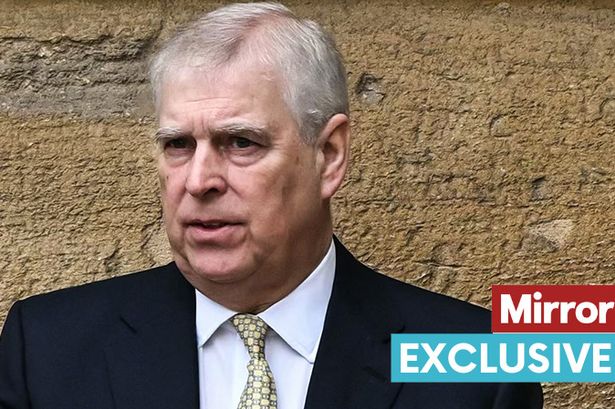Prince Andrew’s potential presence at the traditional Royal Family Christmas church service has become a subject of intense speculation and debate following his recent entanglement in a “Chinese spy” scandal. This latest controversy, adding another layer to the Duke of York’s already tarnished reputation, centers around his alleged association with a suspected Chinese agent, Christine Ching Kui Lee, who reportedly donated substantial sums to his private office. While no illegal activity has been proven against Prince Andrew, the mere suggestion of a connection with a figure suspected of espionage has ignited a firestorm of criticism and raised serious questions about his judgment and associations. The timing of this revelation, just weeks before Christmas, throws into sharp relief the ongoing dilemma facing the Royal Family regarding Prince Andrew’s public role and his participation in family events, particularly those with high visibility like the Christmas Day church service.
The potential consequences of Prince Andrew’s appearance at the Christmas service are multifaceted and carry significant weight for both the Royal Family and the Duke himself. For the monarchy, his presence risks overshadowing the festive occasion and diverting attention away from the positive message of unity and tradition the event typically represents. It could also be interpreted as a tacit endorsement of Prince Andrew despite the lingering cloud of suspicion and controversy surrounding him, potentially undermining the institution’s carefully cultivated image and public perception. The optics of Prince Andrew standing alongside other senior royals, particularly in a religious setting, could be jarring for many, especially in light of the unresolved allegations related to his association with Jeffrey Epstein and the subsequent legal settlement reached with Virginia Giuffre. His appearance could be seen as insensitive to victims of sexual exploitation and trafficking and fuel further calls for his complete withdrawal from public life.
Conversely, Prince Andrew’s absence from the Christmas service could also be fraught with implications. While it might appease those critical of his continued presence within the royal fold, it could also be interpreted as an admission of guilt or wrongdoing, further fueling the narrative of his disgrace. Moreover, his absence could be seen as a form of self-imposed exile, reinforcing his isolation from the family and potentially widening the rift between him and other members of the Royal Family. This could create a sense of awkwardness and tension, particularly if his ex-wife, Sarah Ferguson, and their daughters, Princess Beatrice and Princess Eugenie, are present. Navigating this delicate situation requires the Royal Family to carefully weigh the potential fallout of each scenario and choose the course of action that best protects the institution’s reputation while also considering the personal implications for Prince Andrew and his immediate family.
The decision regarding Prince Andrew’s attendance will likely be influenced by a range of factors, including public opinion, advice from senior aides and advisors, and the wishes of senior royals, particularly King Charles III. The King faces the unenviable task of balancing the demands of his role as monarch, which includes upholding the dignity and integrity of the Crown, with his familial ties to his brother. He must consider the potential damage to the monarchy’s reputation if Prince Andrew attends, while also acknowledging the personal and emotional complexities of excluding a family member from a cherished tradition. The Queen Consort, Camilla, may also play a significant role in this decision-making process, offering her counsel and perspective on how best to navigate this sensitive situation. Ultimately, the decision will require careful consideration of all stakeholders and a strategic assessment of the long-term ramifications for the Royal Family.
The “Chinese spy” scandal itself adds another layer of complexity to this already delicate situation. The allegations of association with Christine Ching Kui Lee, even if they do not lead to any formal charges or investigations, further erode public trust in Prince Andrew’s judgment and reinforce the perception of him as a liability to the monarchy. The nature of the accusations, involving alleged connections to foreign influence and potential espionage, raises concerns about the potential compromise of sensitive information and the potential risks to national security. While Prince Andrew has denied any wrongdoing, the mere association with such a figure casts a long shadow over his credibility and further diminishes his standing within the Royal Family and the public eye.
The unfolding drama surrounding Prince Andrew’s potential Christmas appearance underscores the ongoing challenges facing the Royal Family as they navigate the fallout from his controversial past and the more recent “Chinese spy” scandal. The decision regarding his attendance will be a highly symbolic one, carrying significant implications for the future of the monarchy and its relationship with the public. Whether he attends or not, the situation highlights the deep divisions and unresolved issues within the Royal Family and the difficult choices they face in balancing tradition, reputation, and familial ties. The Christmas service, traditionally a moment of unity and celebration, may inadvertently become a stage for the ongoing drama surrounding Prince Andrew and a reminder of the challenges facing the monarchy in the modern era.














